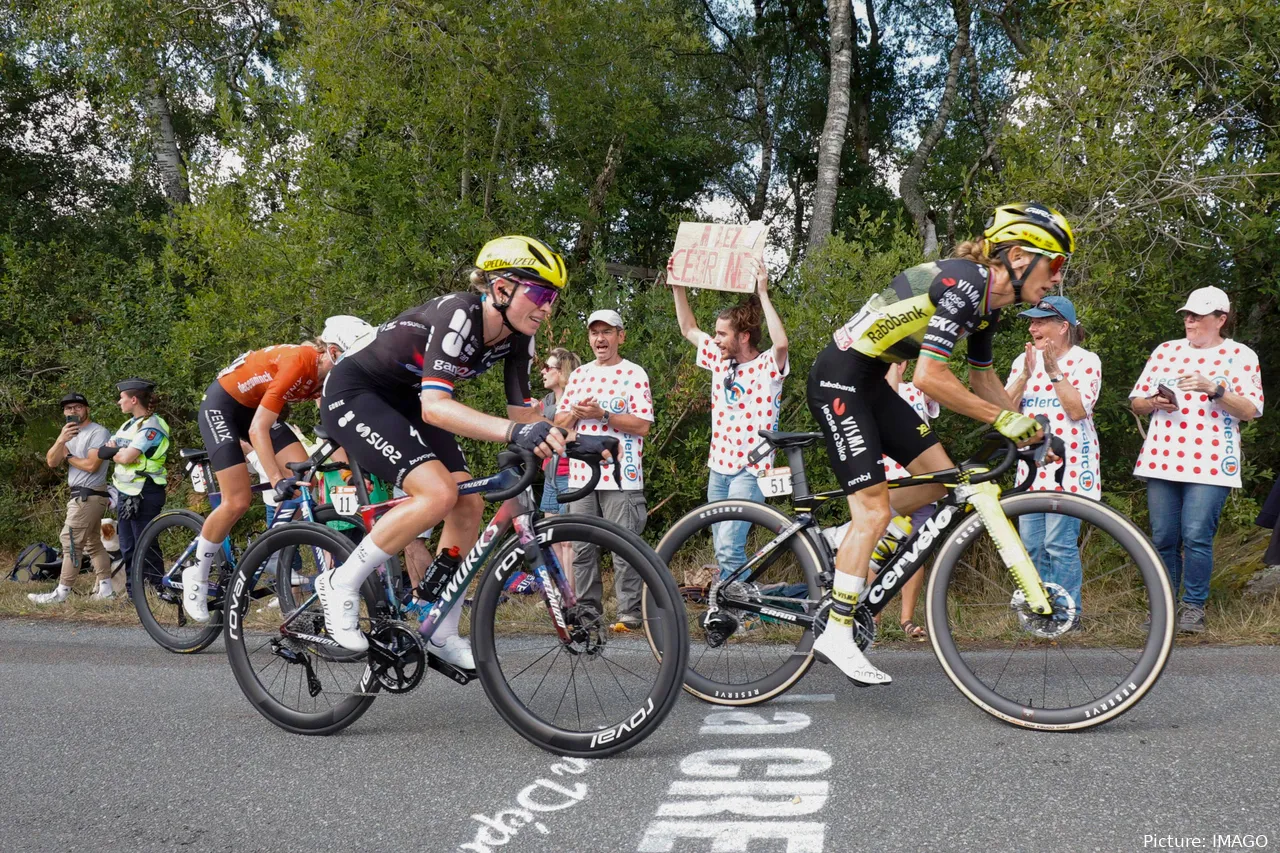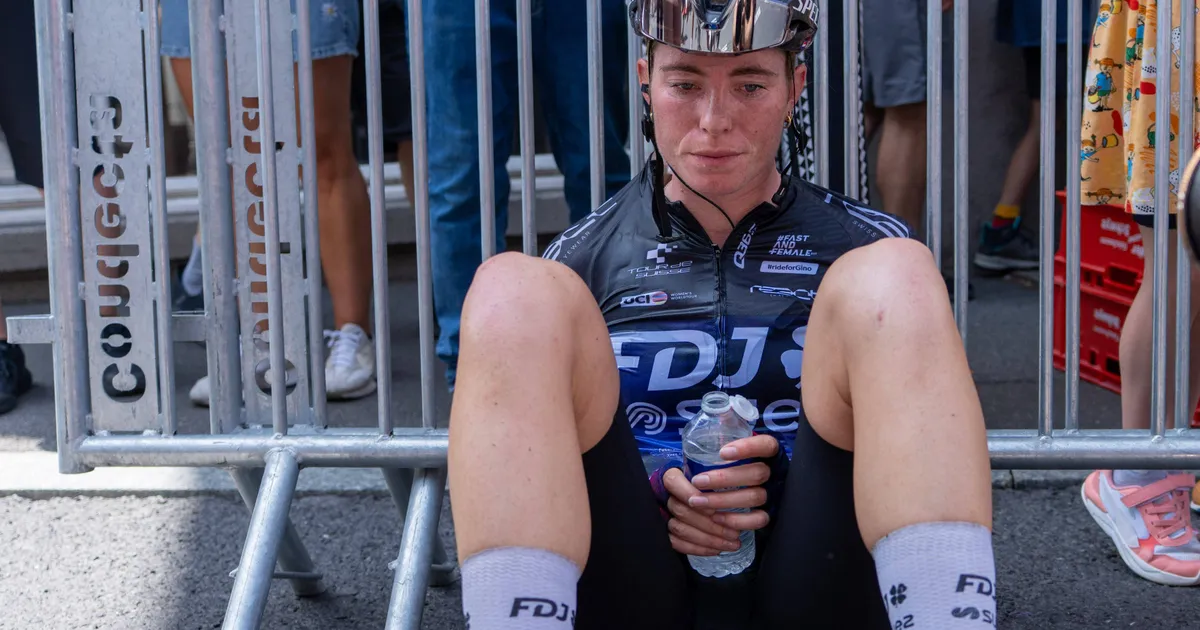Vollering’s post-Tour message
Vollering’s social media post — shared several days after the Tour concluded — offered a heartfelt and thoughtful reflection on the pressures faced by female athletes. In it, she acknowledged the volume of post-race media attention directed at her body weight, and made clear that for her, the priority would always be long-term health over short-term performance gains.
“I’m not built to be the lightest rider in the peloton. And I don’t want to force my body to become something it’s not,” she wrote. “We did everything we could to arrive at the Tour in the best possible shape — for me… Losing weight is not the ultimate solution.”
She also pointed to the influence of elite athletes on younger generations: “Because young girls are watching us. They notice what we say — and what we don’t… The risk is real… disordered thinking can grow quietly and stay hidden for a long time.”
The post has been widely praised across the sport for its maturity and candour, particularly given the delicate balance female athletes often must strike between performance, health, and public expectation. But Horner, while not dismissing the sentiment, saw it as out of step with the tactical errors he believes defined Vollering’s race — and her inability to match eventual winner Pauline Ferrand-Prévot on raw physical performance.
Vollering was a distant 2nd behind Ferrand-Prevot in France
“You went 0 for 2”: Horner’s critiqueMuch of Horner’s criticism centred on Stage 9, a brutal 125km route featuring three classified climbs and a steep drag to the finish. Vollering’s FDJ–Suez squad rode aggressively, with Juliette Labous and Evita Muzic setting pace for much of the day while Ferrand-Prévot remained isolated in the yellow jersey.
Yet despite this apparent numerical advantage, Horner argues that FDJ’s tactics effectively handed the race to Ferrand-Prévot.
“You had the yellow jersey isolated for 80% of the stage, and no one took advantage,” Horner said. “Juliette Labous was riding on the front, pulling the yellow jersey. Demi Vollering pulled her all the way to the finish.”
Horner was particularly scathing about the missed opportunity to force Ferrand-Prévot onto the front, or to isolate her under pressure by launching repeated attacks. “If Demi Vollering is not at her optimal watts per kilo, you do not want to go one-on-one against Ferrand-Prévot,” he said. “Instead, you want to get her working. Get her covering attacks. But what happened? She sat back there like she was having a coconut Snickers, getting a free ride.”
The debate around weight, performance, and responsibility
Horner acknowledged the complexity of weight in professional cycling — but made no bones about its significance. “Yes, the way you get to race weight is important. Health is important. But let’s not pretend it’s not a performance factor. It is.”
He recounted his own experience riding for FDJ in the late 1990s, describing how his directeur sportif could detect even a half-kilo gain, despite winter jackets and layers. “That’s just the reality of racing in the European peloton,” he said.
Still, Vollering’s message resonates in a sport where stories of disordered eating, underfueling, and long-term health consequences have increasingly come to light — particularly in the women’s peloton. While Horner’s analysis focuses on tactical and physiological shortcomings, Vollering’s post aims to broaden the conversation to include athlete welfare and the message sent to future generations.
Ultimately, the debate comes down to the balance between realism and responsibility. Vollering insists that there is no single path to success in the sport. Horner, meanwhile, sees Stage 9 as a textbook case of a rider losing out because they didn’t get either of the two most critical elements — power-to-weight and tactics — right.
Both views can be true. What’s clear is that Vollering’s words — and Horner’s response — have sparked a conversation that goes far beyond a single stage or a single Tour.

